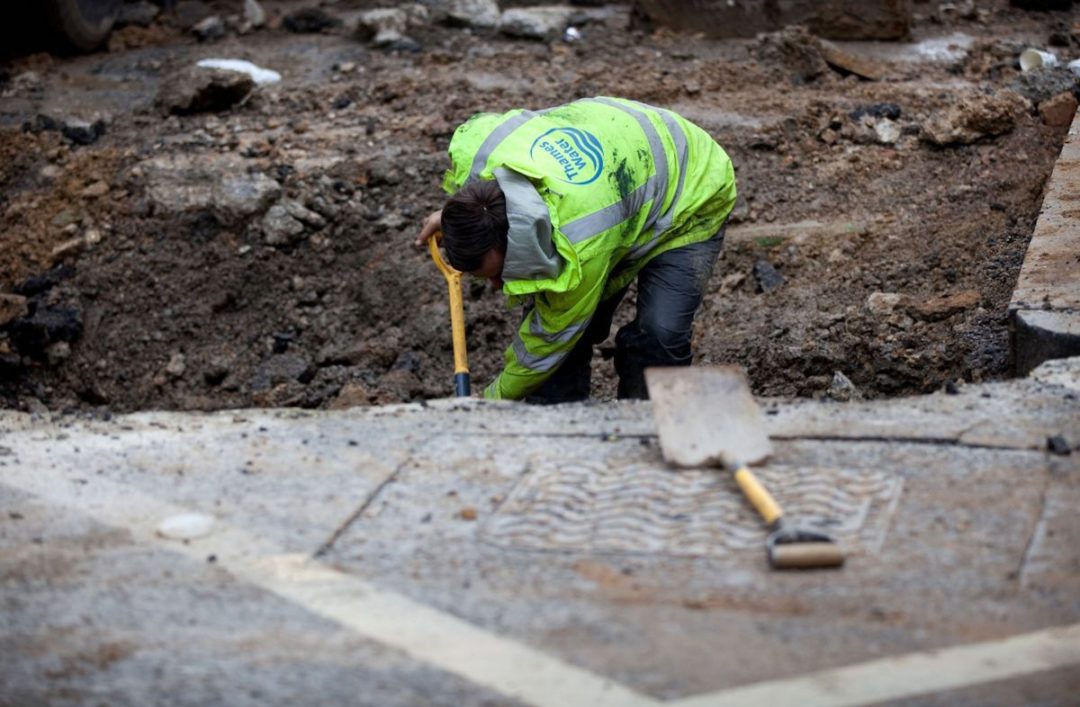
Visit Our Sponsors |
|
|
|
|
|
|
|
|
|
|
|
|
|
|
|
|
|
|
|
|
|
|
|
|
|
|
|
|
|
|
|
|
|
|
|
|
|
|

Britain’s biggest water supplier, Thames Water, is in talks with officials over contingency plans, including temporary nationalization, as concerns grow over its more than £13 billion ($16.5 billion) debt pile, according to people familiar with the matter.
Thames’ bonds tumbled the morning of June 28, with one falling 35 pence on the pound. CEO Sarah Bentley suddenly stepped down with immediate effect June 27 amid concerns over the financial stability of the firm, forcing the issue onto the government’s agenda.
Read more: U.S.-U.K. Minerals Agreement May Boost U.K. Exports, S&P Says
“There is a lot of work going on behind the scenes with Thames Water to ensure customers are not impacted,” water minister Rebecca Pow told the House of Commons June 28 in response to an urgent question by the opposition Labour Party.
Talks are underway between water regulator Ofwat, the Department for Environment, Food and Rural Affairs and the Treasury about bringing the utility company into a so-called special administration regime, according to two of the people. One said they hoped nationalization would not be necessary.
Rocketing interest rates are putting pressure on leveraged companies. At the end of March 2023, Thames Water had the highest debt-to-equity ratio in the sector at more than 80%, according to a note from Martin Young, an analyst at Investec.
Inflation
More than half of the company’s senior debt is linked to inflation, which has remained stubbornly high in the U.K.
New government regulations have also added to Thames Water’s problems. While most of its bonds fell June 28, those belonging to junk-rated Thames Water Kemble Finance dropped sharply. These notes are dependent on receiving dividends from the operating company, and a regulatory decision in March — which came into effect mid-May 2023 — to curb water companies’ dividend payments made it harder for the unit to receive payouts from its subsidiary.
Thames Water said it is working with shareholders to raise more equity, in a statement published in response to media coverage about its position. It said it had raised £500 million in March, as previously planned. During the summer of 2022, it said that, on top of this fundraising, it was seeking a further £1 billion from shareholders.
A spokesperson for Ofwat said it’s in ongoing discussions with Thames Water about a plan to turn the business around.
Read more: U.K.’s Centrica Warns More Gas Storage Needed for Energy Security
Thames Water provides water services for 15 million people in London and southeast Britain.
England’s privatized water companies have historically relied on public debt markets to fund their operations. Environmental campaigners have accused them of borrowing heavily to fund large dividends and executive bonuses instead of investing more heavily in the system’s often-antiquated infrastructure.
Labour’s environment spokesman, Jim McMahon, accused the conservative government of “handing over the water industry” to private companies “at a knockdown price.”
Sewage Spills
The water sector has faced public outrage over sewage spilling into rivers and along coastlines and is struggling to cope with the U.K.’s increasingly hot summers. The country suffered a long drought in 2022, and utilities have imposed restrictions on families’ water use despite a large number of leaks in Britain’s antiquated pipes.
Bills are likely to rise as water companies present plans to Ofwat to fix more infrastructure from 2025, Investec’s Young added in the note.
Other major water companies have higher rates of capital, said Ahmed Farman, equity analyst at Jefferies, reducing the risk of contagion. Still, he said the latest developments would “raise broader questions about past regulatory robustness, financing and ownership structures for the sector.”
Debt
Thames Water had £4.3 billion of secured bank loans and private placement notes at the end of September 2022 and £9.5 billion of bonds issued out of different units, out of which £2.8 billion are linked to U.K. inflation. Each of the units offers different security to investors.
Read more: South Africa Plans $1.5bn Water Fund with Climate Finance
Darren Jones, a Labour party Member of Parliament who chairs the House of Commons Business and Trade Committee, told the BBC that the government shouldn’t be nationalizing the whole water industry. However, he said, “if we ended up in a situation where the private owners of these companies have completely messed it up, then there is no choice for the government other than to bring it into public ownership and to run it.”
AlixPartners has been undertaking operational improvement work on Thames Water for a couple of months while Rothschild is also advising the company, according to people familiar with the matter.
A spokesperson for AlixPartners declined to comment.
RELATED CONTENT
RELATED VIDEOS
Timely, incisive articles delivered directly to your inbox.






